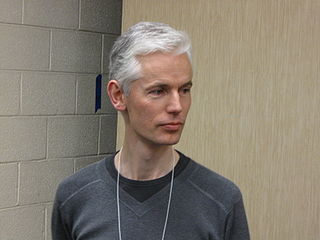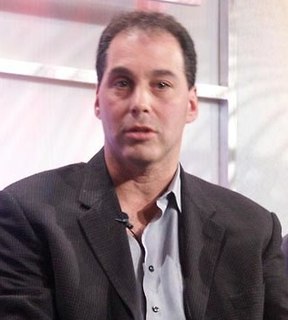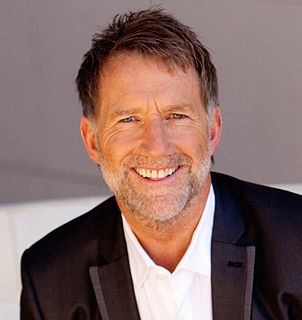A Quote by Brian Kernighan
Anytime you want to hear about graph partitioning, I will be glad to tell you what I know about graph partitioning. It remains a standard problem. I think it's an interesting problem, because it shows up in a variety of guises in real life.
Related Quotes
At the other end of the spectrum is, for example, graph theory, where the basic object, a graph, can be immediately comprehended. One will not get anywhere in graph theory by sitting in an armchair and trying to understand graphs better. Neither is it particularly necessary to read much of the literature before tackling a problem: it is of course helpful to be aware of some of the most important techniques, but the interesting problems tend to be open precisely because the established techniques cannot easily be applied.
You know how it always is, every new idea, it takes a generation or two until it becomes obvious that there's no real problem. It has not yet become obvious to me that there's no real problem. I cannot define the real problem, therefore I suspect there's no real problem, but I'm not sure there's no real problem.
You know, I think I understand what you're like now. You're very beautiful and you think men are only interested in you because you're beautiful. But you want them to be interested in you because you're you. The problem is, aside from all that beauty, you're not very interesting. You're rude, you're hostile, you're sullen, you're withdrawn... oh, I know- you want someone to look past all that at the real person underneath. But the only reason anyone would bother to look past all that is because you're beautful. Ironic, isn't it? In an odd way you're your own problem.
The problem facing humanity today is not a political problem; it's not a financial problem; it's not a military problem. It's obviously a spiritual problem. That is, it has to do with what we believe to be true about who we are, where we are, why we are where we are, and what are we doing on the Earth. What is the purpose of life itself? What we need right now are leaders or models, people who will stand up and not only help to write a cultural story, but help to model it in the way that they interact with each other.
Abraham Maslow taught me, that when you're working with a patient, never let them spend more than a few moments on the problem, because what you think about is what expands, and if they're talking about the problem all the time, when they leave your session, the problem will expand. Get 'em to put their attention on what they intend to create, or on solutions.
It is said if an organization listens to the complaint of a customer and the problem is fixed, the customer remains a loyal customer and tells approximately seven others about the experience. Conversely, if a person is ignored and the problem not fixed, that customer will not deal with that organization anymore and will tell approximately twenty other people about the negative experience.





































